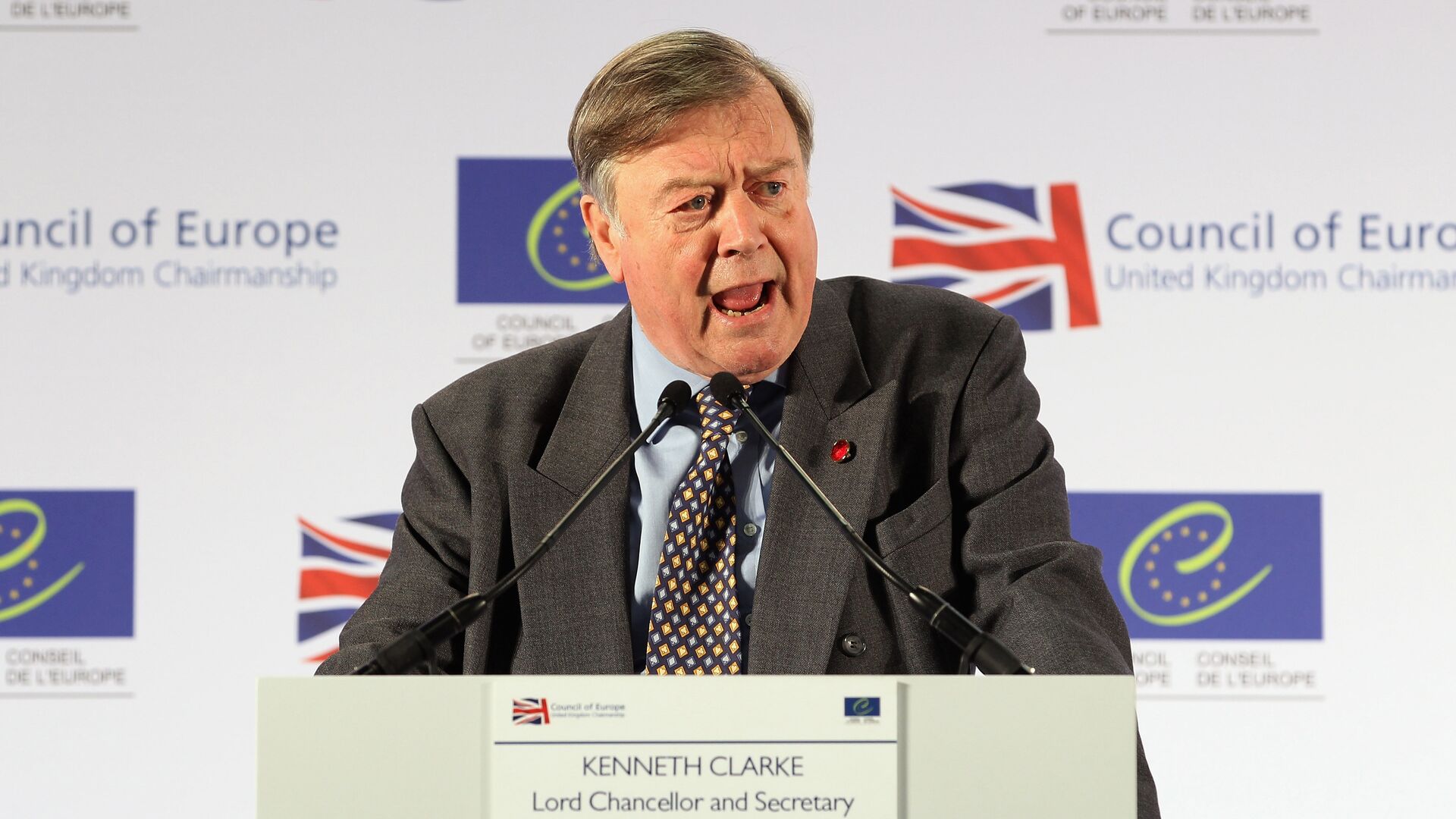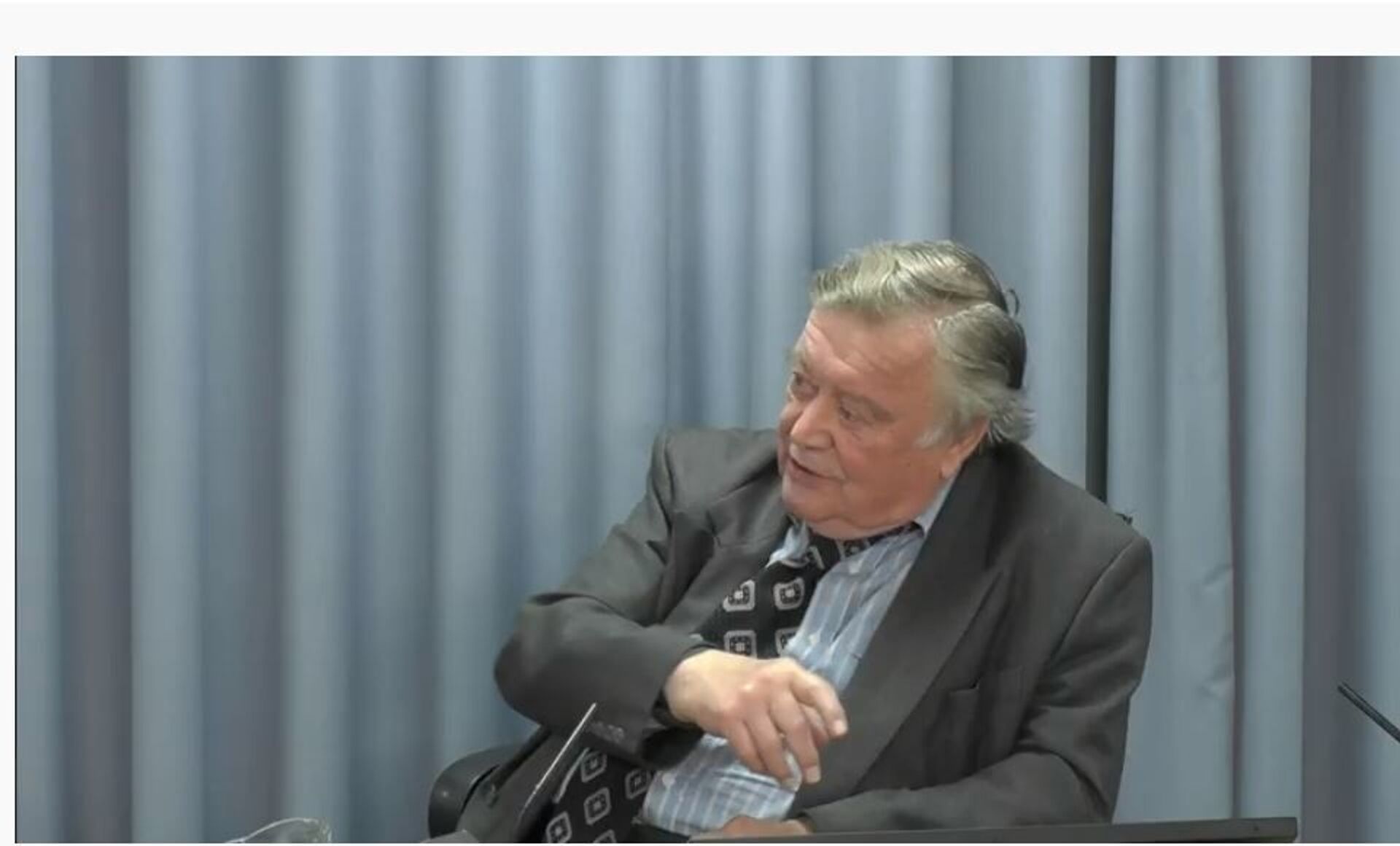Ex-Health Secretary Tells Infected Blood Inquiry NHS Tried to Avoid 'Collateral Damage' in 1980s
12:59 GMT 27.07.2021 (Updated: 15:15 GMT 28.05.2023)

© AFP 2023 / Dan Kitwood
Subscribe
Ken Clarke was a junior health minister between 1982 and 1985 and later returned to become Health Secretary between 1988 and 1990. He later became Chancellor of the Exchequer and remained a Conservative MP until 2019 and is now a peer, Lord Clarke of Nottingham.
Veteran Conservative politician Ken Clarke has told the Infected Blood Inquiry he was keen to avoid “collateral damage” to the NHS blood transfusion service when the issue of HIV and AIDS emerged in the early 1980s.
Around 3,000 people - many of them haemophiliacs - died in the late 1970s and early 1980s after being given blood products infected with HIV and hepatitis C.
Lord Kenneth Clarke has just been sworn in. He will be giving evidence until Thursday 29 July and will remain under oath.
— Infected Blood Inquiry (@bloodinquiry) July 27, 2021
He is being questioned by Lead Counsel Jenni Richards QC. pic.twitter.com/q2nZ4F6trt
It has been described as “the biggest treatment disaster in NHS history” and Lord Clarke is the first government minister from the time to give evidence to the inquiry, which is due to report its findings in 2023.
On Tuesday, 27 July, Lord Clarke was questioned by Jenni Richard QC, lead counsel to the inquiry. about the events of the spring and summer of 1983 when it was suspected, but not conclusively proven, that HIV could be transmitted through blood products.
@HaemoSocUK CEO @katehaemophili1 in @thesundaytimes today talking about the Infected Blood Inquiry.
— Clive Smith 💙 (@Clive_Smith_) July 25, 2021
Kenneth Clarke to give evidence about his role in the scandal from Tuesday. #infectedbloodinquiry pic.twitter.com/h55Vhz6sVE
Up to 30,000 people with haemophilia and other bleeding disorders were given blood products infected with HIV or hepatitis C.
Ms Richards asked him why he had intervened about the content of leaflets which were due to be handed out to potential blood donors warning them of the dangers of donating if they had engaged in homosexual sex.
Lord Clarke replied: “To avoid panic breaking out, helped by ‘silly season’ stories in the papers, anything putting people off from donating blood or dissuading people from having operations which they needed. A secondary factor was that I didn’t want to feed homophobia.”

Kenneth Clarke, now known as Lord Clarke of Nottingham, gives evidence to the Infected Blood Inquiry
© Photo : Infected Blood Inquiry/YouTube
He said they had to handle the matter very carefully and did not want to “quiz donors about their sex lives” but he added: “We wanted to stop gays, or promiscuous gays, from giving blood.”
Lord Clarke said: “That was the reason I intervened. The only way of minimising the risk was to try and handle it as carefully as possible.”
The “silly season” is the quiet period during the summer when there is little news around and British newspapers have a tendency to exaggerate stories which might otherwise not have become big news.
Lord Clarke said he feared one of the tabloids running a “Docs Ban Gays’ Blood” story which could discourage donors from giving blood.
He said he feared the blood transfusion service could become “collateral damage” if the issue was handled “clumsily.”
The proposed leaflets were finalised in May 1983 and finally handed out in September of that year but Lord Clarke said he did not believe he was to blame for the delay.
Lord Clarke said he was not alone in his view and he said he thought it might have been shared by many doctors and the regional directors of the blood transfusion service, who had a legal duty under the Medicines Act not to use blood which endangered those receiving it.
Sir Henry Yellowlees, chief medical officer when Lord Clarke became health minister in 1982, "didn't immerse himself in these medical issues very much", he said. The appointment of "conscientious" Sir Donald Acheson as his successor in 1983 was a "huge improvement", he said.
— The Haemophilia Society Public Inquiry Team (@HaemoSocUK_PI) July 27, 2021
In the early 1980s thousands of haemophiliacs were given a clotting agent called Factor VIII which had been manufactured in the US, using plasma donated by prisoners and other high-risk groups.
When HIV was better understood in the mid- to late-1980s blood products were heat-treated to kill viruses such as HIV.
Lord Clarke said the government would have faced "rage and fury" from haemophiliac campaigners if they had banned the use of Factor VIII and he added: "They would have said we had over-reacted."

